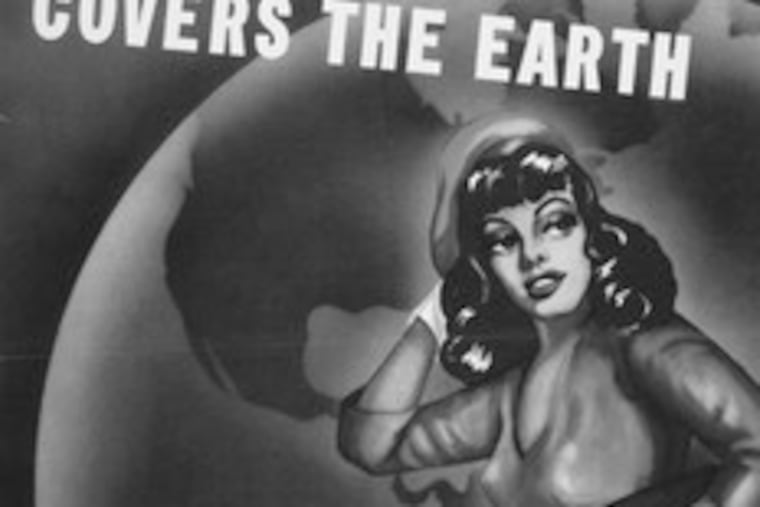Carnal Knowledge | Condoms: A look at their place in history
This summer, in what some may consider the end of civilized society, mainstream drugstores started stocking the 4Play vibrating ring - a battery-powered, next-generation, "pulsating" condom accessory.

This summer, in what some may consider the end of civilized society, mainstream drugstores started stocking the 4Play vibrating ring - a battery-powered, next-generation, "pulsating" condom accessory.
And to think that only a couple of years ago they hid regular old rubbers behind the pharmacy counter.
"There is an overall demystification of the sex industry going on in the country," says Carol Carrozza, vice president of marketing for LifeStyles, the brand behind 4Play.
Those who fear for our collective innocence needn't worry: Condoms have been out of the closet before.
Take the 17th century, when they were sold openly to men and women by tailors and taverns or through special shops, says Aine Collier, a University of Maryland professor and author of a book on prophylactics through the ages.
Casanova "was passionate about condoms," she says, and would often entertain women by blowing the condoms up, which also tested for holes. She maintains that the 18th-century libertine was particularly diligent when having sex with nuns, although his autobiography mentions one nun who supplied her own.
Collier, who teaches history and English, learned all that after a romance writer asked whether it would be historically accurate for her 17th-century heroine to slide a condom onto her lover's tumescent manhood, or whatever she called it.
The subject caught her imagination as a lens through which to view human nature, politics, commerce, and power struggles between the sexes. So she gathered enough lore to write The Humble Little Condom: A History, to be released by Prometheus Books next month.
The condom was officially invented and reinvented more times than the wheel, especially by sausage manufacturers who kept noticing what else you might put in that casing. Condoms may predate even the sausage, having evolved from various other types of penis coverings used as long ago as ancient Egypt.
The concept may go back even further. A cave painting at Grotte des Combarelles in France that was determined to be at least 12,000 years old shows what appears to be a couple coupling, Collier says, "and it looked for all the world as if the man had covered himself with some kind of animal skin."
But condoms took off big time in the late 16th century, when they were made from linen or animal stomachs or other innards. "They were very crude," Collier points out, fitting like a Baggie and secured with plain twine or colored ribbon.
People of the powdered-wig era liked the protection their condoms offered from unwanted pregnancy as well as from syphilis and other infections. In the 1870s, however, morality czar Anthony Comstock launched a war on condoms in America. He and various New York businessmen pushed what was known as the Comstock Act through Congress in 1873. It outlawed pornography as well as the sale or purchase of condoms and other birth-control devices.
Collier's research found that 3,873 people were arrested and more than 2,900 convicted for condom-related crimes, among them giving lectures that advocated birth control. "The States are still trying to recover," says Collier, who spent part of her childhood in England.
Even in the modern age of AIDS, says LifeStyles brand's Carrozza, retailers have often squirreled away condoms behind the counters because they personally disapproved of them or thought older customers would be offended or parents would want to protect their children from the sight of condom boxes.
But condoms have been slowly emerging from the shadows since 1973, when the Food and Drug Administration started regulating them as a medical device.
The latest addition to the rubber rack goes beyond the medical realm. Carrozza says the new 4Play product attaches to condoms to help stimulate both partners, thus counteracting the dulled sensation that many men complain about (though probably not Casanova).
So far, she says, her company hasn't gotten any complaints about the product's recent debut in chain pharmacies.
"Kudos to the retailers," she adds, "for taking the jump into the pool."
A 4Play interactive and book details: http://go.philly.com/health
EndText